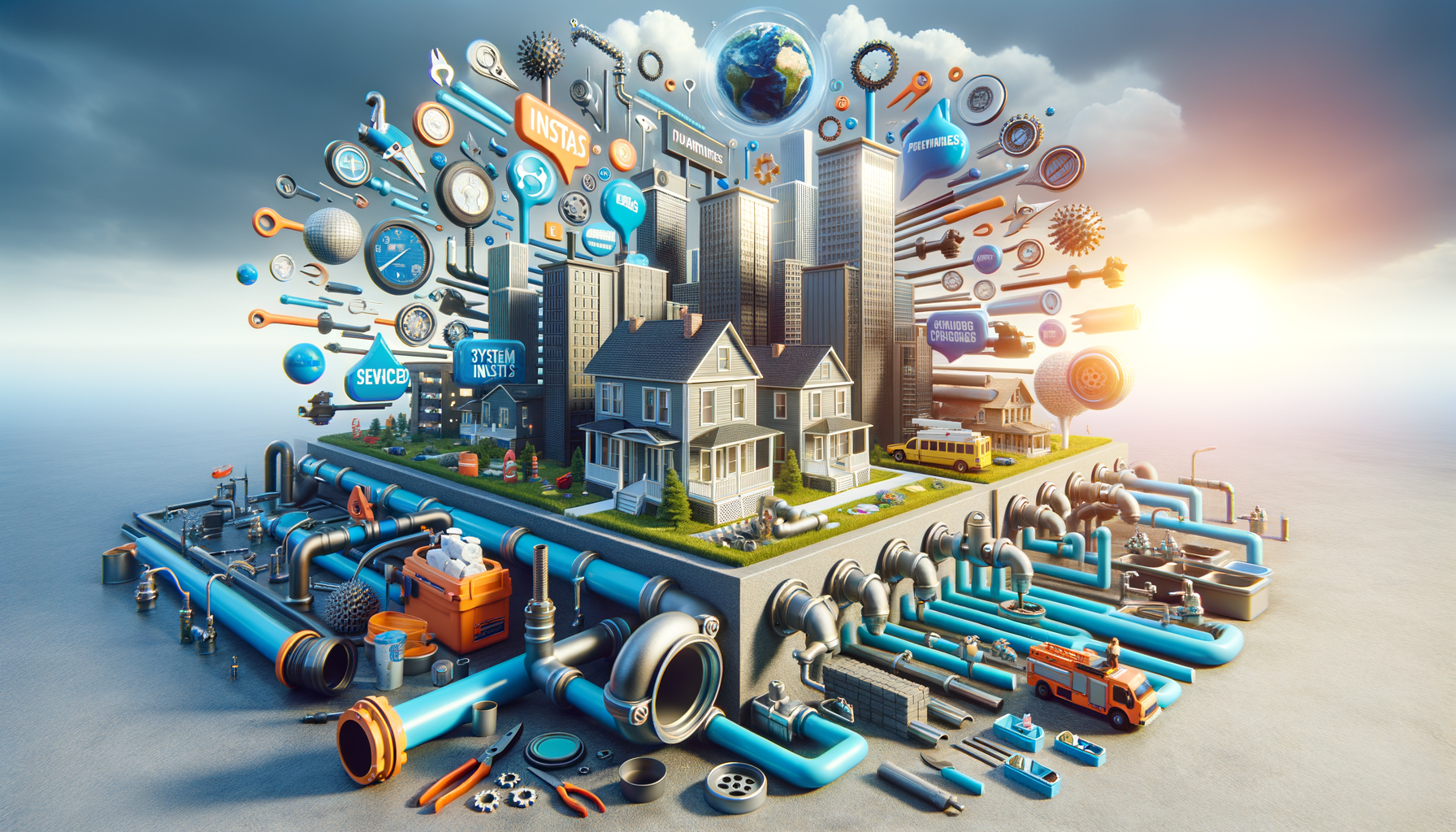
Businesses Specializing in Plumbing Services
Introduction to Plumbing Services
Plumbing services are an essential part of maintaining the infrastructure of both residential and commercial properties. Whether it’s a new system installation or a repair, understanding the intricacies of plumbing can significantly impact the efficiency and longevity of the systems in place. This article delves into the differences between residential and commercial plumbing services, highlighting the importance of specialized knowledge in each area.
System Installations: Residential vs. Commercial
System installations in plumbing vary significantly between residential and commercial settings. Residential plumbing systems are typically simpler and smaller in scale. They involve the installation of pipes, fixtures, and appliances such as water heaters and dishwashers. The focus is primarily on ensuring the comfort and convenience of the household. In contrast, commercial plumbing systems are more complex and extensive. They often require the installation of large-scale systems capable of handling higher volumes of water and waste. This includes systems for restaurants, hotels, and office buildings, which may require specialized fixtures like grease traps or industrial-grade water heaters.
When it comes to installation, commercial projects often demand adherence to stricter codes and regulations due to the higher stakes involved in public safety and business operations. This necessitates a thorough understanding of local building codes and the ability to plan and execute projects that meet these standards. Additionally, commercial installations may require coordination with other contractors and trades, making project management skills crucial.
Repair Services: Tailoring to Different Needs
Repair services in plumbing also differ between residential and commercial settings. Residential repairs often involve fixing leaky faucets, clogged drains, or malfunctioning water heaters. These issues, while potentially disruptive, usually affect a small number of people and can often be resolved relatively quickly.
Commercial repairs, however, can be more urgent and complex. A plumbing issue in a commercial setting can disrupt operations, leading to lost revenue and customer dissatisfaction. For instance, a broken pipe in a restaurant could halt service, while a malfunctioning toilet in an office building could affect dozens of employees. As such, commercial repairs often require more immediate attention and a higher level of expertise to ensure minimal disruption to business operations. This sometimes involves working outside of regular business hours to complete repairs with minimal impact.
Specialized Knowledge and Skills
Both residential and commercial plumbing require specialized knowledge and skills, but the focus and application of these skills can differ. Residential plumbers often work directly with homeowners, requiring strong communication skills to explain issues and solutions clearly. They must be adept at troubleshooting a variety of household plumbing issues and recommending appropriate solutions.
Commercial plumbers, on the other hand, may work more closely with property managers, contractors, and other tradespeople. They need to be familiar with large-scale plumbing systems and the specific requirements of different types of commercial properties. This includes understanding the unique needs of different industries, such as the importance of sanitation in food service or the need for reliable water pressure in multi-story buildings.
Moreover, commercial plumbers often require additional certifications or training to work on specialized systems, such as those involving hazardous materials or high-pressure equipment. This highlights the importance of continuous education and skill development in the plumbing industry.
Conclusion: Choosing the Right Plumbing Service
Choosing the right plumbing service, whether residential or commercial, depends on understanding the specific needs and challenges of each setting. For residential properties, the focus is on comfort, convenience, and quick resolution of issues. In commercial settings, the priority is often on compliance, efficiency, and minimizing disruption to business operations.
Ultimately, both residential and commercial plumbing services play a crucial role in maintaining the functionality and safety of our built environments. By understanding the differences and demands of each type, businesses and homeowners alike can make informed decisions when selecting plumbing services. This not only ensures the proper functioning of plumbing systems but also contributes to the overall success and sustainability of their properties.


